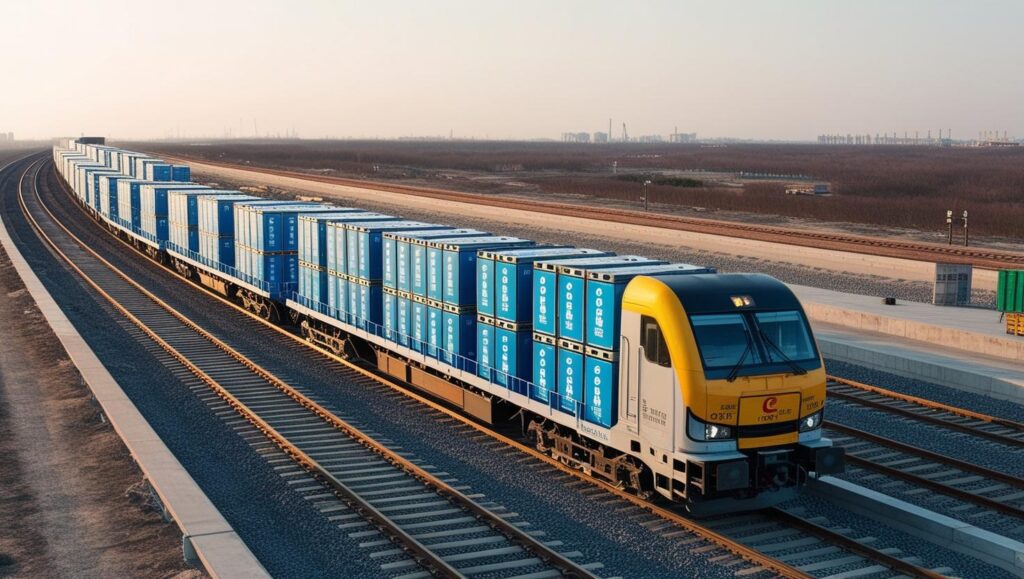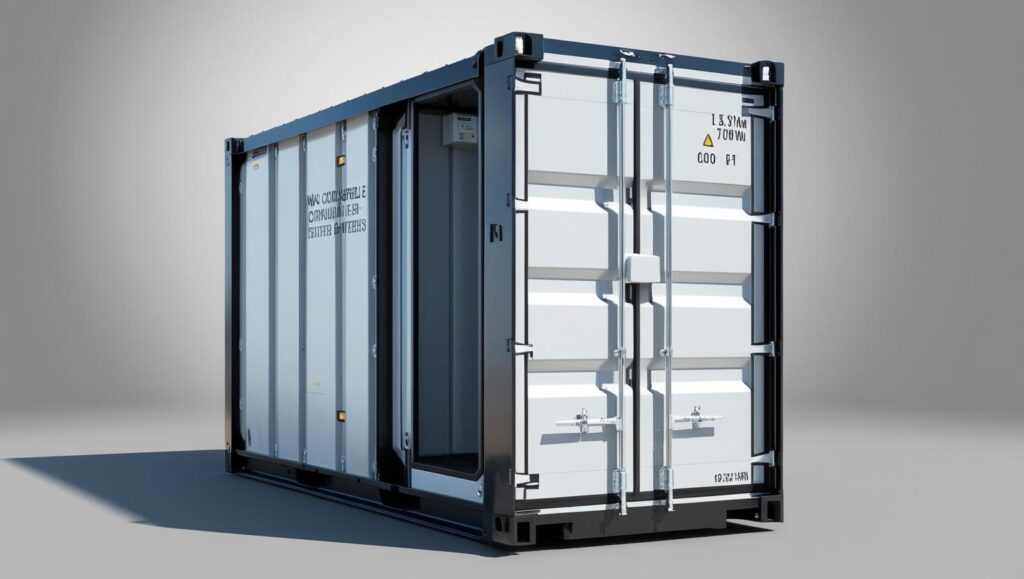In a significant move to enhance the logistics of electric vehicle (EV) battery transportation, China Railway has embarked on its first large-scale trial of rail transport for lithium-ion batteries. This initiative marks a pivotal step in integrating rail networks into the supply chain of EV components, aiming to improve efficiency and safety.
The Inception of the Rail Transport Trial
On November 19, 2024, three freight trains loaded with lithium batteries departed simultaneously from Chongqing Municipality, Sichuan Province, and Guizhou Province in southwest China. These trains were destined for various locations, including Shanghai, marking the commencement of this innovative transportation method.

Addressing Safety Concerns in Battery Transportation
Transporting lithium-ion batteries poses inherent risks, as they are classified as dangerous goods due to their potential to burn or explode if subjected to jolts or improper handling. To mitigate these risks, China Railway has introduced specialized containers designed exclusively for battery transport. These containers are constructed from non-combustible materials and equipped with advanced safety features, including smoke and temperature detectors, as well as venting devices to manage internal pressure.
Advantages of Rail Transport over Traditional Methods
Traditionally, the transportation of lithium batteries within China has relied heavily on road and sea routes. However, rail transport offers several distinct advantages:
- Capacity: Railways can handle larger volumes of cargo compared to road transport, facilitating the movement of substantial quantities of batteries efficiently.
- Speed: Rail transport is generally faster than sea freight, reducing the time required to deliver batteries to domestic and international markets.
- Safety: With the implementation of specialized containers and stringent safety protocols, rail transport minimizes the risks associated with battery transportation.
Jia Ping, deputy general manager of China Railway Chengdu Group Co., Ltd., emphasized that rail transport not only increases capacity but also enhances the safety and efficiency of battery logistics.
Industry Reception and Future Implications
The trial has garnered positive responses from industry leaders. Liu Jie, responsible for supply chains and logistics at CATL, a major battery manufacturer, stated that this trial is a testament to the safety performance of domestic lithium batteries. He highlighted that rail transport opens a new avenue for efficient battery transportation, potentially reducing logistics costs and improving overall efficiency.

Environmental and Economic Benefits
Transitioning to rail transport for EV batteries aligns with broader environmental and economic objectives:
- Reduced Emissions: Rail transport is generally more environmentally friendly than road transport, contributing to lower greenhouse gas emissions.
- Cost Efficiency: Utilizing rail networks can lower transportation costs due to economies of scale and reduced fuel consumption per unit of cargo.
- Supply Chain Resilience: Diversifying transportation modes enhances the resilience of the supply chain, reducing dependence on a single mode of transport and mitigating potential disruptions.
By integrating rail transport into the logistics of EV batteries, China is taking a significant step toward sustainable and efficient industrial practices.
Challenges and Considerations
While the benefits are substantial, several challenges must be addressed to ensure the success of rail transport for EV batteries:
- Infrastructure Compatibility: Ensuring that rail infrastructure can accommodate the specialized containers and handle the specific requirements of battery transport.
- Regulatory Compliance: Adhering to national and international regulations governing the transport of hazardous materials.
- Coordination Among Stakeholders: Facilitating collaboration between battery manufacturers, railway companies, and regulatory bodies to establish standardized procedures and protocols.
Addressing these challenges will be crucial for scaling up rail transport solutions for EV batteries in the future.
Future Prospects
The successful initiation of this trial paves the way for broader adoption of rail transport in the EV battery industry. Potential future developments include:
- Expansion of Routes: Establishing additional rail routes connecting major battery production hubs with key domestic and international markets.
- Technological Advancements: Developing more advanced containers and monitoring systems to further enhance safety and efficiency.
- Policy Support: Implementing supportive policies and incentives to encourage the adoption of rail transport for hazardous goods.
As the EV industry continues to grow, efficient and safe transportation of batteries will remain a critical component of the supply chain. China’s proactive approach in exploring rail transport solutions sets a precedent that could be emulated globally.
In conclusion, China Railway’s trial of rail transport for electric vehicle batteries represents a significant advancement in the logistics of EV components. By leveraging the advantages of rail transport, including increased capacity